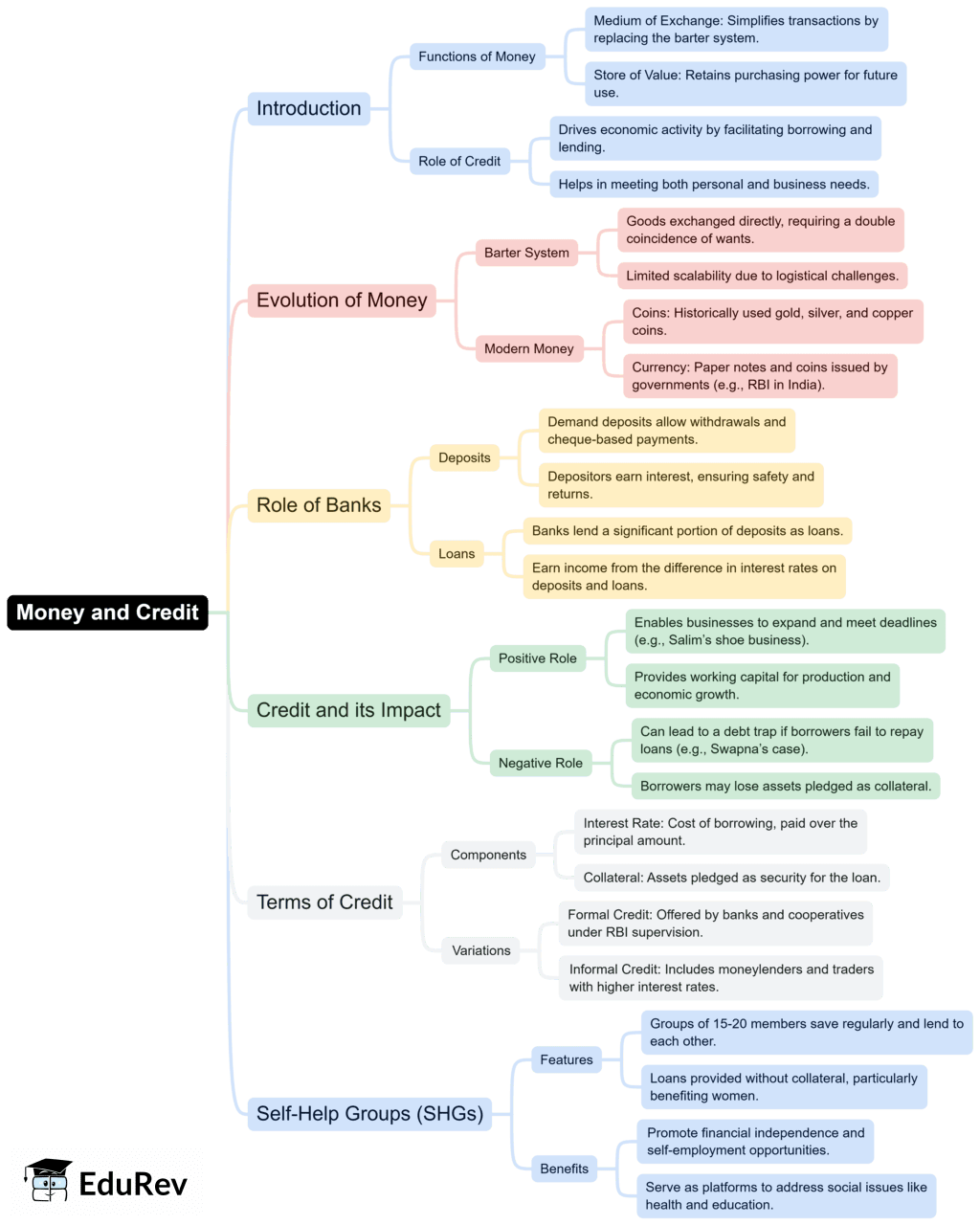Class 10 Exam > Class 10 Notes > Social Studies (SST) Class 10 > Mind Map: Money & Credit
Mind Map: Money & Credit | Social Studies (SST) Class 10 PDF Download

The document Mind Map: Money & Credit | Social Studies (SST) Class 10 is a part of the Class 10 Course Social Studies (SST) Class 10.
All you need of Class 10 at this link: Class 10
|
66 videos|614 docs|79 tests
|
FAQs on Mind Map: Money & Credit - Social Studies (SST) Class 10
| 1. What are the different types of money? |  |
Ans. There are three primary types of money: commodity money, fiat money, and digital money. Commodity money is backed by a physical commodity, like gold or silver. Fiat money has no intrinsic value and is not backed by a physical commodity; its value comes from government regulation and trust. Digital money refers to currency that exists only in digital form, such as cryptocurrencies and balances in bank accounts.
| 2. How does credit work? |  |
Ans. Credit works by allowing individuals or businesses to borrow money with the promise to repay it later, typically with interest. Creditworthiness is determined by factors such as credit history, income, and existing debt levels. When a borrower uses credit, they receive funds that they can use immediately, and they must repay the lender according to the agreed-upon terms.
| 3. What is the importance of credit scores? |  |
Ans. Credit scores are crucial because they help lenders assess the risk of lending money to borrowers. A higher credit score typically indicates a lower risk, making it easier for individuals to secure loans, credit cards, and favorable interest rates. Conversely, a lower credit score can lead to higher costs of borrowing or denial of credit altogether.
| 4. What are the advantages and disadvantages of using credit? |  |
Ans. The advantages of using credit include the ability to make large purchases without immediate payment, build a credit history, and earn rewards or benefits associated with credit cards. However, disadvantages include the risk of accumulating debt, potential for high-interest rates, and the impact on credit scores if payments are missed.
| 5. How can one improve their credit score? |  |
Ans. To improve a credit score, individuals can make timely payments on loans and credit cards, reduce outstanding debt, avoid opening multiple new credit accounts at once, and check their credit report for errors to dispute inaccuracies. Additionally, maintaining a low credit utilization ratio can positively impact the score.
Related Searches

















